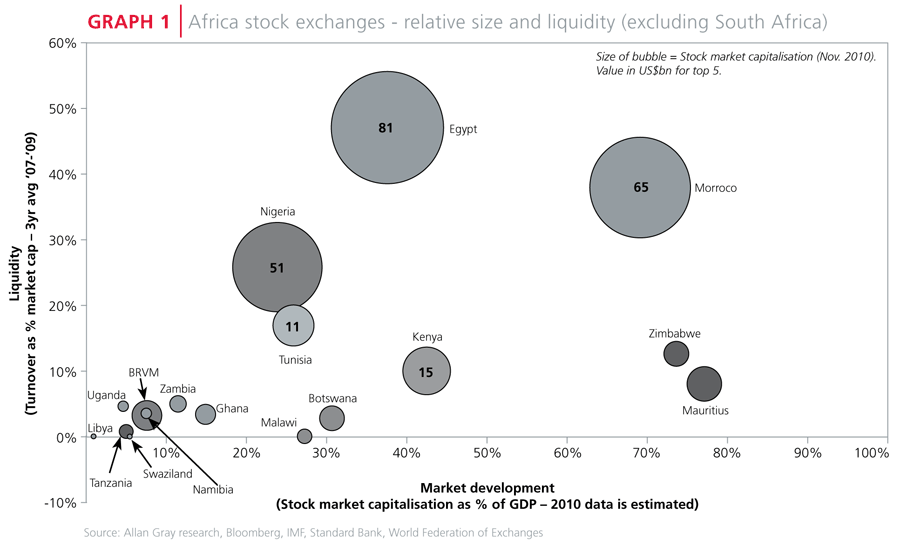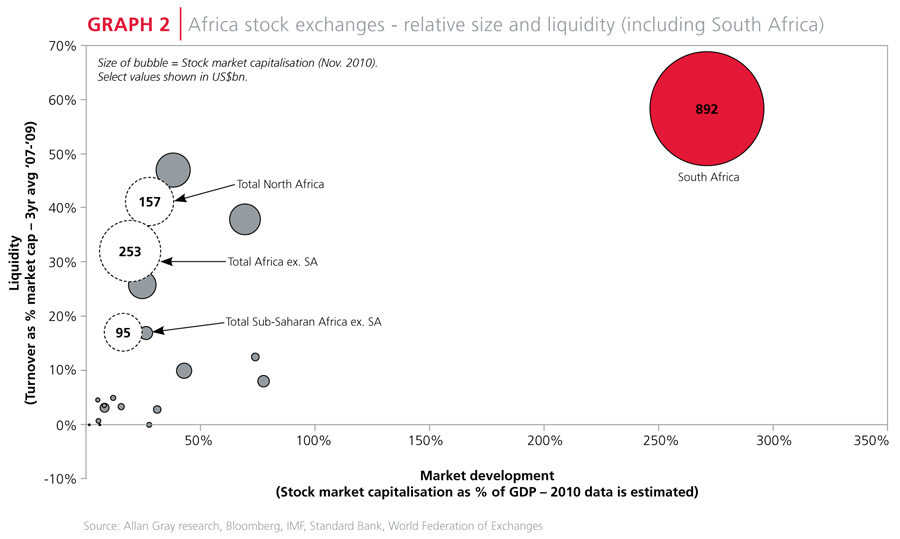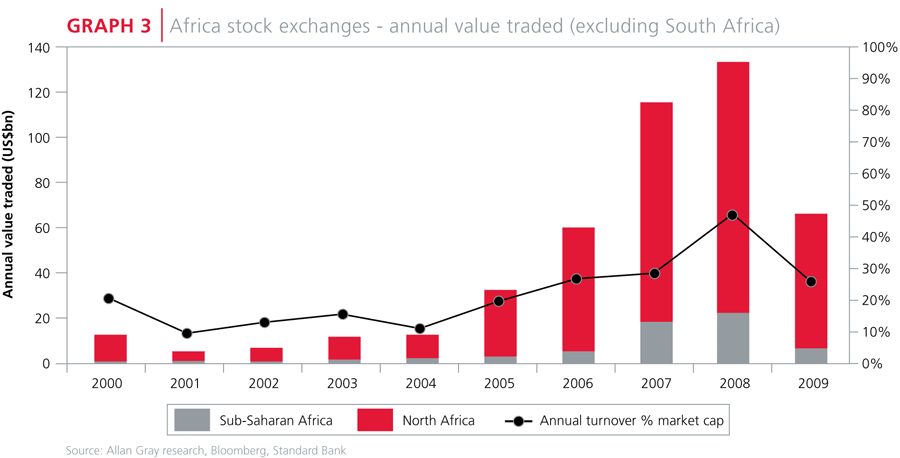We expect a change in prudential investment regulations to allow pension fund investors to invest up to 5% of their assets in Africa, in addition to other foreign assets. As value-oriented investors, we view Africa's growing credibility as an investment destination with both optimism and caution. Nick Ndiritu explores the investable universe in Africa and discusses how we are applying our investment philosophy in these markets.
For some time, the South African Reserve Bank (SARB) has allowed institutional investors to invest up to 5% of their assets in Africa (outside SA), on top of their general offshore allowances. Retirement funds and unit trusts which are managed to comply with the prudential investment guidelines (as set out in Regulation 28 of the Pension Funds Act) have their own offshore limits, which are not (yet) aligned with the SARB regulations. The Financial Services Board has recently reconfirmed its intention to align Regulation 28 with the latest SARB foreign limits. If this happens, an additional 5% of these funds' assets may then be invested in African assets.
Whether the prudential guidelines change or not, we believe it is in our clients' interests for us to understand the investment opportunities that Africa may present. We are still in the early stages of our pan-African journey and, undoubtedly, the investment terrain will be different from Cape Town to Casablanca. We believe in the region's long-term investment case and will strive to find compelling opportunities to invest for clients using our value-oriented contrarian compass (with which investors in Allan Gray funds are quite familiar).
As value-oriented investors, we view Africa's growing popularity as an investment destination with both optimism and caution. Reasons for the current optimism have been well documented and include: (i) a population close to one billion underpinning a large and growing consumer class, rapid urbanisation trends and recent productivity gains; (ii) resources-led trade and infrastructure investment flows; and (iii) improving political governance, competitiveness and macroeconomic stability. Although we recognise some of the factors driving the current interest are not sustainable, on balance we believe Africa presents an attractive set of opportunities for long-term investors.
ON BALANCE, WE BELIEVE AFRICA PRESENTS AN ATTRACTIVE SET OF OPPORTUNITIES FOR LONG-TERM INVESTORS
Changing perceptions about the continent and developments in developed markets are fuelling a sharp rise in private capital seeking a home in Africa. Net inflows into African regional funds investing in public markets totalled US$660 million for the 12 months to September 2010, close to four times the prior best year in 2007. These flows are relatively small and can just as easily be reversed. However, if the trend is sustained, the inflows could be fairly significant relative to the size of the investable universe in Africa's capital markets and the tradeability in these markets.
What is the investable universe in public markets?
The investable universe is best illustrated by Graphs 1 and 2. Excluding South Africa (see Graph 1), the aggregate market capitalisation of African markets is about US$250 billion, or about 20% of GDP. In contrast, companies listed on South Africa's JSE have a capitalisation of about 270% to GDP (see Graph 2), which drops to about 150% if you exclude companies with primary listings in Europe. This reflects both a higher percentage of government contribution to GDP in countries where free market reforms have yet to take hold fully, as well as the underrepresentation of various sectors in the stock market relative to their share in the overall economy. For example, in Nigeria, banks have a dominant share of the country's stock exchange capitalisation (about 50%).
The total market value of all of a company’s outstanding shares. Market capitalisation is calculated by multiplying a company’s shares outstanding by the current market price of one share. The investment community uses this figure to determine a company’s size, as opposed to sales or total asset figures. Consequently, a stock exchange’s size is the aggregate market capitalisation of all the individual companies listed on the exchange.



The turnover ratio (annual value traded / market capitalisation) illustrates the low liquidity in these markets. Often, there are a few stocks which account for a disproportionate share of the country's total market capitalisation. Further, the free float of shares available for trading is reduced by the large fraction of strategic stakes held by multinationals, or the buy-and-hold- forever stakes held by local pension funds with limited investment alternatives in listed equities. Consequently, the annual turnover of Africa's capital markets has averaged about 30% over the last five years (see Graph 3) compared to South Africa's at about 51%. The more illiquid sub-Saharan or 'frontier Africa' markets averaged 14% turnover over the same period and account for less than 15% of average daily traded value (Egypt and Morocco account for about 85%).
How is this investable universe likely to evolve?
The growing capital flows could lead to a scarcity premium being paid, especially for well-managed businesses with reasonable liquidity, potentially above what would otherwise be rational. On the positive side, it is possible that investors will travel further out to the more illiquid edges of Africa's frontier markets, further deepening capital markets and precipitating a wave of new equity issuances and capital raisings.
AN INVESTMENT LANDSCAPE WHICH IS INHERENTLY ILLIQUID MAY BE IDEAL FOR LONG-TERM CONTRARIAN INVESTORS WITH PATIENT CAPITAL
An alternative for investors seeking Africa exposure is via foreign-listed companies with a material contribution from their African operations (mostly resources-related companies and primarily listed in London, Toronto and Sydney). After screening for size and liquidity, the number of publicly-listed companies likely to attract institutional investors' attention shrinks from a total of about 1 100 (either listed on Africa's exchanges outside of South Africa or foreign-listed) to about 150-200 companies. This represents about 10-20% of the total universe but accounts for over 80-85% of the combined market capitalisation.
Our investment approach
Our initial efforts will be focused on a subset of the 92 largest and most liquid African companies. This purchase universe may be expanded in time, but for now it serves as a useful way to focus our efforts. We are also looking selectively at the more illiquid companies outside this core universe. Our premise is that an investment landscape which is inherently illiquid may be ideal for long-term contrarian investors with patient capital. We want to be ideally positioned to provide liquidity for others - patiently buying if the market significantly discounts illiquid stocks below our estimate of their intrinsic value; or selling when the market overvalues liquidity.